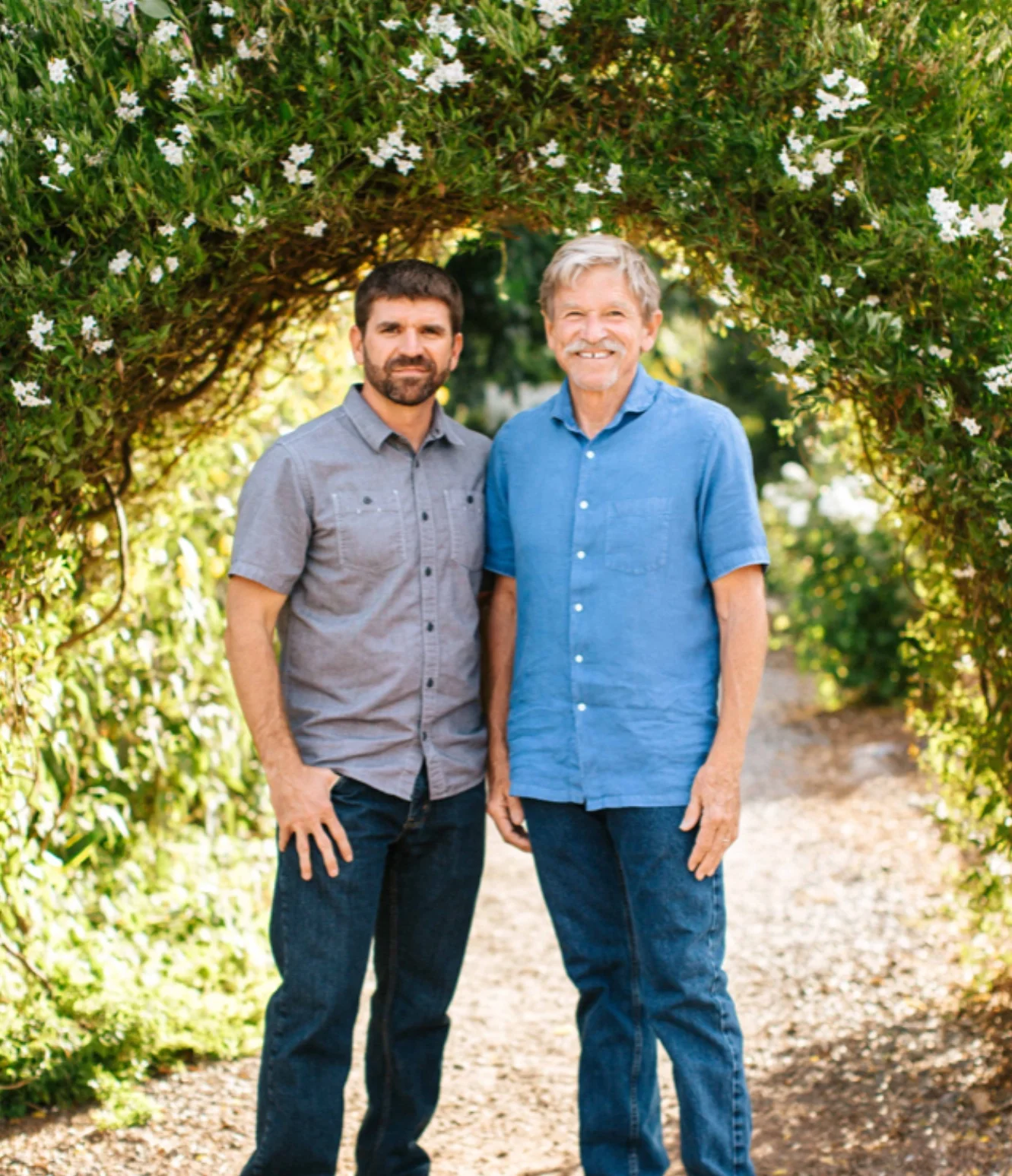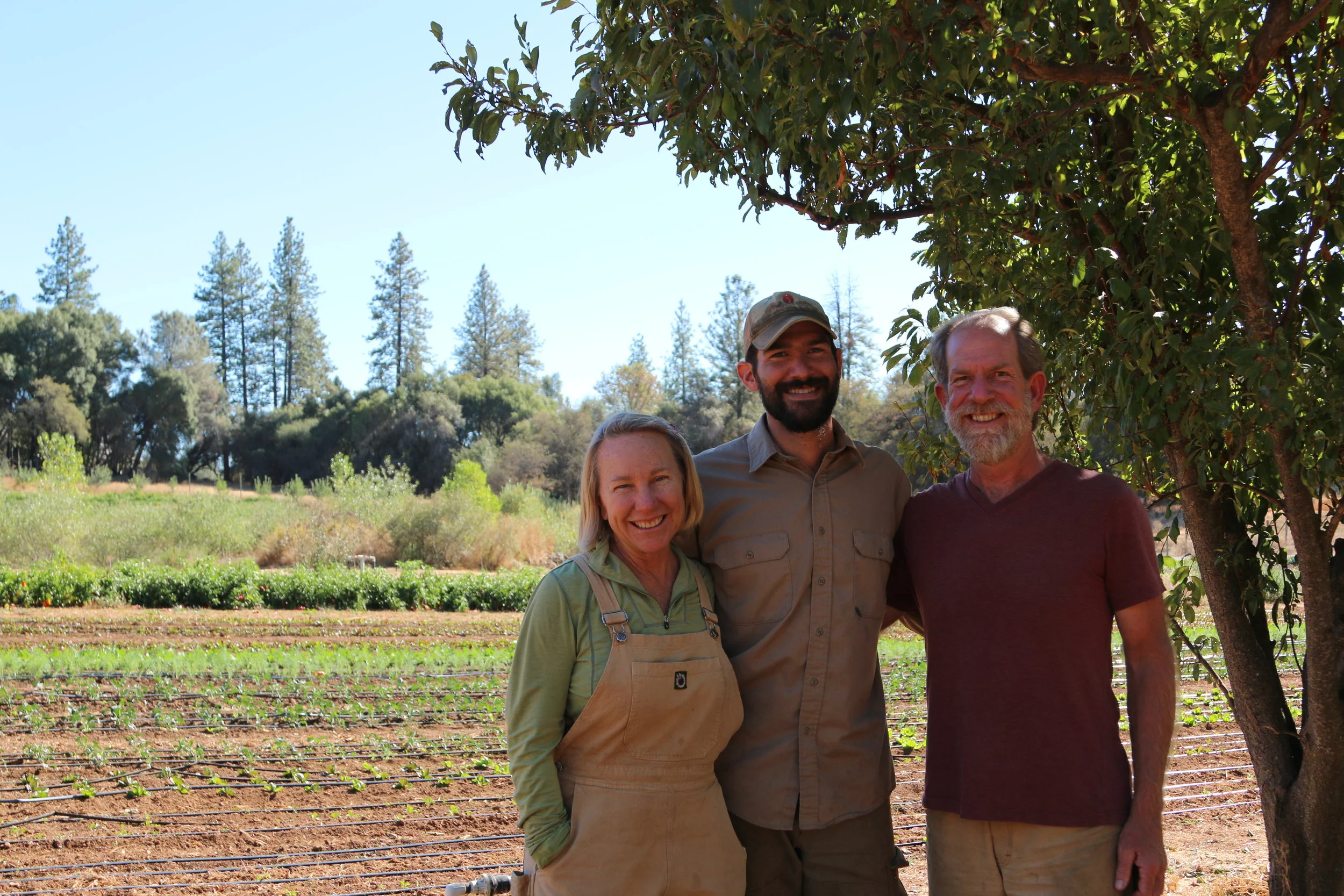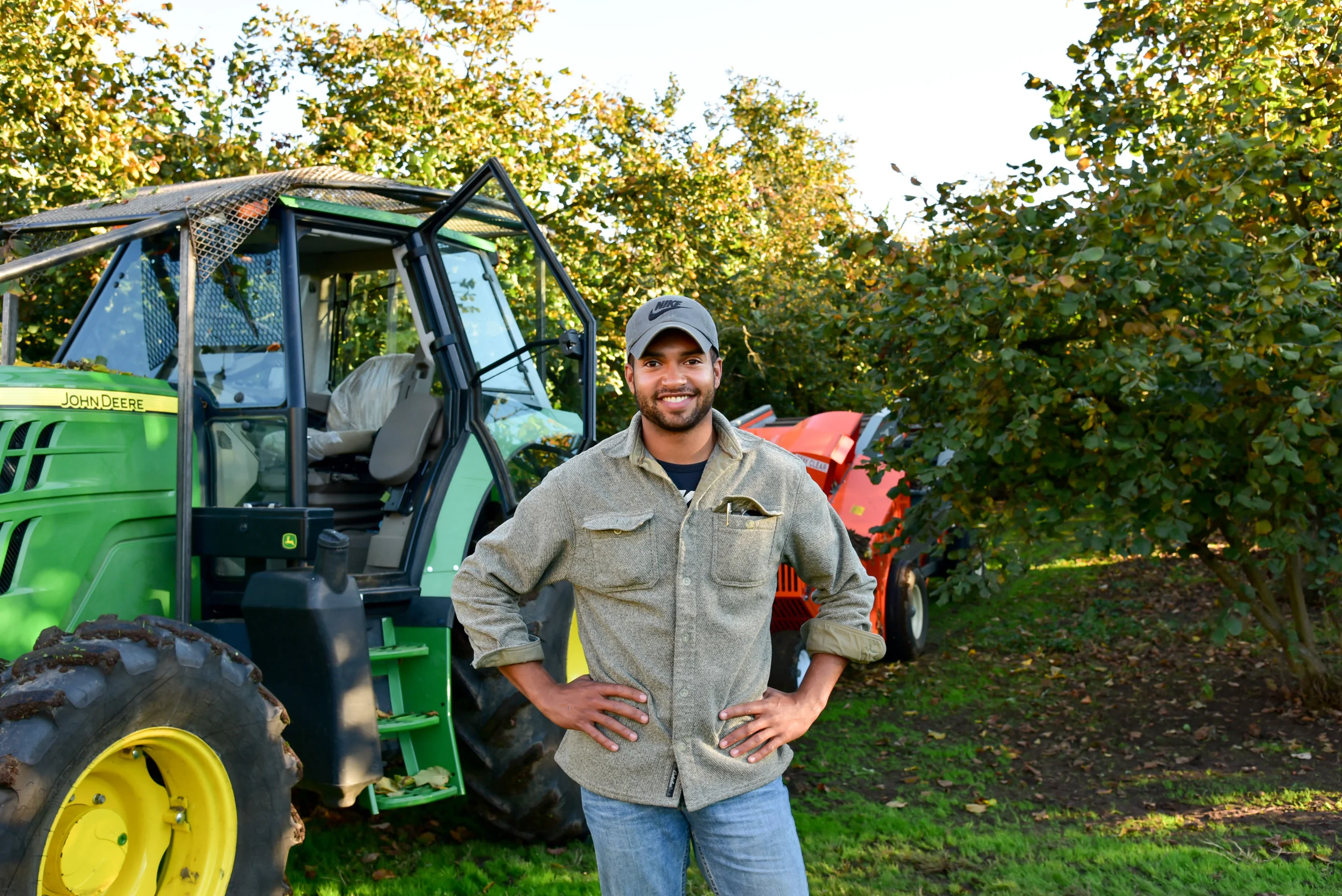Changing Hands story Series
One of the biggest obstacles to convincing elder farmers to plan for succession is the lack of successful examples of farm transition. The stories we too often hear about farm transition are negative ones about family strife and the loss of farms. Many farmers, consequently, are discouraged from even starting to plan for succession, but there are farmers and ranchers who have found creative ways to pass their land and businesses to the next generation. To lift up these success stories, Rogue Farm Corps produced a bi-weekly story series called “Changing Hands” in Capital Press[i] featuring inspirational stories about farmers and ranchers who have found creative ways to pass on and take on farmland.
From January to December of 2019, Ashley Rood, a consultant for RFC, authored a total of 19 stories both in print and online[ii] in the Capital Press, “The West’s Ag Weekly” news source since 1928. The Capital Press is the trusted information source for rural farmers in the Pacific Northwest. The “Changing Hands” story series has been educating the newspaper’s readership about why and how to plan for succession, and providing inspiration and success stories. The column also shared resources to help with succession planning and conservation, encouraging readers to take the next step in succession planning and conserving their land in perpetuity.
These stories feature a variety of farms in the Capital Press’ distribution area, from a direct market dairy on the Olympic Penninsula to a non-family ranch transfer in the Oregon Coast Range. Stories include farm transitions to family or non-family members, and unique business partnerships. The “Changing Hands” story series reached over 25,000 Capital Press print and online subscribers.
[i] https://www.capitalpress.com/specialsections/farm_succession/
“I fell in love with growing a lot of food as a way to make money and bring people together,” says Karyn Williams of Red Dog Farm. “But I had no idea if farming is what I should do. I needed to try it.” Leasing land proved essential to providing both the experience and community Williams needed to build a thriving farm business on the Olympic Peninsula in Washington.
“I’ve had the opportunity to farm beautiful land for my whole career,” says Anne Schwartz. “It is a joy to get younger people on the land.” After over forty years, Anne and the farm’s owner, Lois Canright, are making way for the next generation in the Skagit River Valley. Lois says, “Those of us that own farmland at this point are the lucky ones. We have a responsibility to look at real estate values and what it takes to farm and try hard to find creative ways to help next generation farmers get on the land.
“The challenge for our family is not so much succession after death, we have a good plan for that, but it’s the active succession—how do we support multiple families and generations on the ranch,” says Adele Schott, the fifth generation at 6 Ranch in Enterprise, Ore.
“Growing food for my community is so satisfying,” says Trina McAlexander, the new proprietor of Mt. View Orchards in Parkdale, Ore. Trina bought the small, 50-acre family orchard from her parents in 2014. “I felt called to farming, to carry on the family farm, since I was a young girl,” says Trina, “I started socking away money as soon as I could, working as a nurse practitioner so I could buy my parents’ farm.”
“Our succession plan started, and we didn’t even know it!” says Jabrila Via. The plan’s auspicious start came in 1995 when Chris Overbaugh came to work at Winter Green Farm—little did anyone know what the future held.
“I was home from college over the summer, working on the farm. I wasn’t planning on going back to college, although no one knew that yet. One day I said to my grandpa, ‘if my uncle doesn’t work out, I wouldn’t mind trying to run this place.’ I had no idea how powerful those words were,” says Whit Peters.
“All you want for your life is meaningful work and meaningful relationships,” says Steve Horning. “and we are lucky to have that.” Steve is the third generation on his family’s 1300-acre farm in the Willamette Valley. While Steve now runs most of the day-to-day operations, full retirement isn’t on his dad’s bucket list: “I looked at older farmers when I was growing up and I thought, they’ve been retired their whole lives,” says Gary Horning. “That’s what it means to do what you love.”
“In 1995, when I was 15 and my sister was 14, the large family ranch was splitting up. We had a family meeting and our parents asked if we wanted to sell the ranch or keep it,” says Toni Meacham, “We didn’t want to leave, we wanted to stay.”
“There was never a time where I knew a farm was going to be offered to me,” says Lisa Perry of Odell, Oregon, the heart of orchard country, “But I was willing to put in the sweat equity into operating a farm anyway.” Today, you can’t point to just one farm or business that Perry is involved in. From making plans to carry on her family’s farm stand, Cody Orchards Farm Stand, to planting trees with her husband Ricardo on his uncle’s farm to tending to their newly purchased acreage and helping out with her stepdad’s orchard business, Perry lives and breathes the orchard life.
“Sometimes we think, as the dad or grandfather, we need to come up with all the answers,” says Paul Dolan, patriarch and fourth generation of a family vineyard and winemaking legacy. “But the reality is having the conversation with your children or siblings and coming up with choices together.” The successful transfer of the Dolan legacy is the result of Paul’s unique leadership, a balanced business partnership with his son Heath, and a shared-responsibility to the land.
“The toughest thing anyone is going to have to do is go to their parents and say: You’re going to die one day and, can we talk about it?” Koopmann Ranch will stay in the family for the fifth generation because Tim and his wife, Melinda, are not just talking about succession planning, they are doing it. In communication with family members, no matter how hard the conversations, they’ve put clear business and estate plans in place—which include a pair of conservation easements and two kids who share a deep love of ranching.
“When I turned 30, I had the conversation with my wife that I wanted to move home and try to make a go of it,” says Loren Poncia of Stemple Creek Ranch. “If we never tried, I would always wonder what could’ve happened.” Loren and his wife Lisa are now the fourth generation running the family ranch in the coastal hills of Northern California. Their farm transfer’s success rests on reinventing the ranch as a business and a commitment to working in sync with Mother Nature.
We meet Antonio and Alan in the middle of their story, in the middle of transitioning Riverhill Farm. Antonio, “I was attracted to the beauty of the place, the thoughtfulness of Alan and Jo, the quality of the produce, and the community.” As the new operator at Riverhill Farm, Antonio Garza is already showing a deep understanding of what Alan Haight and Jo McProud worked so hard to create.
“In 2014, my son Andy called me and said, ‘I want to come home and farm,’” says Dave Baldus. For Dave, it was essential that Andy kept his day job until they had a plan. “I needed Andy to know what he was coming home to.” Since that pivotal phone call, the Balduses have embraced one-on-one transition planning sessions, learned to communicate better as a family, and created a working partnership to set up B4 Sunrise for the future.
“When it comes to transferring a farm to the next generation, success is temporary, but failure is permanent,” says Ryan McCarthey of Dungeness Creamery. Their ongoing success is the result of a creative shift in their business model, a cash infusion from selling the property’s development rights, training, and a little bit of fate.
“We are constantly asking ourselves—how can we do our best?” says Jana McClelland. Constant evolution, learning, and care for the land are at the heart of success for McClelland Dairy. It is reflected in day-to-day operations, as well as the transition of the farm from father to daughter through partnership.
The root cellar at Wild Hare Organic Farm is finally full this year. After two years, “we could grow through winter with confidence and load up the root cellar without worry, because it was fully ours,” says Katie Green. In 2017, Mark and Katie Green purchased a 21-acre farm just outside of Tacoma from local sustainable farming leaders, Dick and Terry Carkner—and the deal they struck ensured it will stay a farm forever.
Even if you’re ready to retire, it can be difficult to identify a successor. And no matter who the next generation is, it can be emotionally, logistically, and financially challenging to transfer the land and business to the next generation.
“It’s the ultimate compliment to have your child take over the family farm,” says Warren Harper, of Harper Farms in Junction City, Oregon, the heart of the Willamette Valley. Bryan Harper has done just that—he’s stepped up to be the fifth generation at the helm of Harper Farms.
“I remember when we finalized the conservation easement on our farm, friends said, ‘are you crazy, do you know what that property would be worth if it was subdivided?’ Our response is, and has always been, money isn’t everything, they don’t make land any more, and we wanted to protect the legacy of the natural open space, and resources that are here.”





















